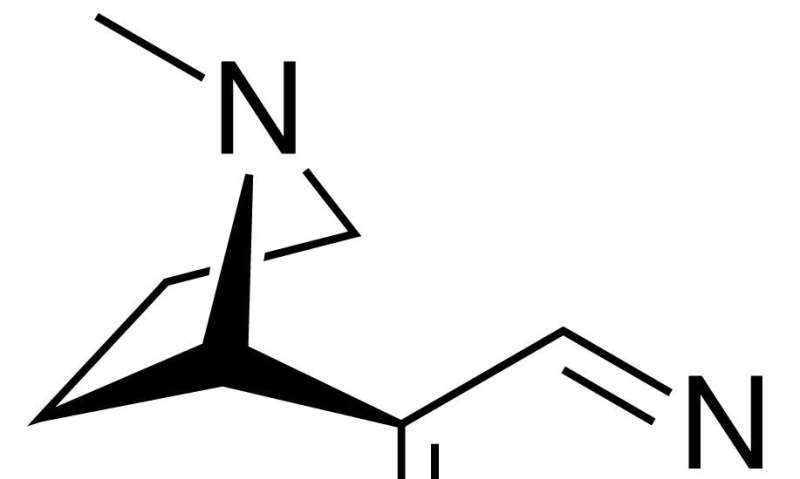Compounds block stress-enhanced nicotine intake in rats

Stress is a major cause of relapse after people quit smoking. Worrying situations, such as money or relationship problems, can affect neurotransmitter levels in the brain, leading former smokers to reach for a cigarette. Now, researchers reporting in ACS Pharmacology & Translational Science have discovered that compounds that activate γ-aminobutyric acid (GABA) receptors in the brain can keep rats from self-administering increased levels of nicotine during stressful conditions in an animal model for relapse.
GABA is an inhibitory neurotransmitter that decreases nerve signaling in the brain. When a person experiences stress, their GABA levels can decrease, causing some neurons to become hyperactive. Using an animal model, Burt Sharp and colleagues wanted to find out if giving rats compounds that stimulate GABAA, a specific type of GABA receptor, on certain neurons, called basolateral amygdala principal output neurons, could lessen the rats' relapse to nicotine during stressful conditions.
In the animal model, rats were taught to press a lever to self-administer nicotine. After a week, the animals were withdrawn from nicotine for 8 days. To cause stress, the researchers confined the rats in a small space. After releasing the rodents, the team injected one of three compounds, called positive allosteric modulators of GABAA, or PAMs, into a specific region of the stressed rats' brains, and then gave them access to the nicotine-administering levers. Untreated stressed rats pressed the levers about 1.5 times more frequently than they had before the abstinence period, while rats treated with any of the PAMs reduced nicotine intake to levels seen in unstressed rats before the abstinence period. If similar effects are confirmed in humans, novel, selective PAMs could be helpful in alleviating the stress-induced relapse to smoked tobacco, with potentially fewer side effects than GABA administration, the researchers say.
More information: Burt M. Sharp et al. Allosteric Modulation of GABAA Receptors in Rat Basolateral Amygdala Blocks Stress-Enhanced Reacquisition of Nicotine Self-Administration, ACS Pharmacology & Translational Science (2020). DOI: 10.1021/acsptsci.0c00111


















